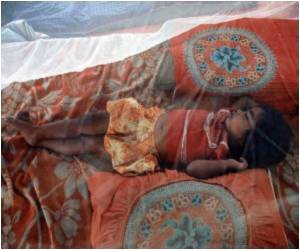
Two randomised controlled trials - carried out in Burkina Faso and Mali - found that combining intermittent preventive treatment of malaria with long-lasting insecticide-treated bed nets provided substantial additional protection against episodes of clinical malaria, severe malaria, and all-cause hospital admissions in children.
Each trial involved more than 3,000 children who were treated intermittently with anti-malarial drugs sulphadoxine pyrimethamine and amodiaquine.
The intermittent preventive treatment was initially recommended for pregnant women and has recently been extended to include infants and children.
However, previous studies in children were carried out in countries where the use of insecticide treated bed nets - a main tool used for malaria control in most of sub-Saharan Africa - was relatively low.
Therefore, the findings of these two trials are important as they demonstrate the additional benefit that intermittent preventive treatment can confer on standard malaria control practice.
Advertisement
The authors of the study in Mali too arrived at a similar conclusion, saying "These findings indicate that the Intermittent preventive treatment could make a valuable contribution to malaria control in areas of seasonal malaria transmission alongside other interventions."
Advertisement
A third trail carried out in the Gambia found that administering intermittent preventive treatment to children by community-based, volunteer village health workers was more effective and less costly than delivery by reproductive and child health teams run by the Ministry of Health.
The studies are published in this week's PLoS Medicine.
Source-ANI












